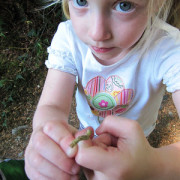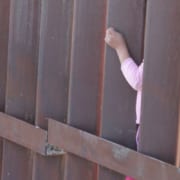Letting Go: Mother’s Day and the Greater Good
BY JOANNE MIYA | May 9, 2020
On Sunday, May 10, the United States celebrates Mother’s Day. Although phone calls and flowers will be sent far and wide, that was not Julia Ward Howe’s intent when she conceived the idea of a Mother’s Peace Day. In 1870, Howe wrote the “Mother’s Day Proclamation” which was a call to action, inviting mothers to denounce war and to promote world peace.
Arise, all women who have hearts, whether your baptism be that of water or of tears! Say firmly: “We will not have great questions decided by irrelevant agencies, our husbands shall not come to us, reeking with carnage, for caresses and applause.
“Our sons shall not be taken from us to unlearn all that we have been able to teach them of charity, mercy and patience. We women of one country will be too tender of those of another country to allow our sons to be trained to injure theirs.” [The Original Mother’s Day Proclamation]

Though celebration of Mother’s Day 150 years later retains little of the original intent of a Mother’s Peace Day, there are certainly parallels between motherhood and pacifism that ring true, and through humanity’s challenges with the ongoing pandemic. There’s a certain letting go, a surrender to selflessness that motherhood demands that teaches us hard lessons of the selflessness of working for peace. It likewise points to the courage demanded to ‘stay home’ for the sake of the greater good in stopping or slowing the spread of a pandemic. Although I hesitate to compare motherhood with the coronavirus pandemic, there is one lesson they can both teach us; that we are not in charge.
Anyone who is a mother or who has taken on the commitment of raising a child knows all too well that the minute a child enters your life, you are no longer in control. This wee little person determines when you eat, when you sleep, or if in fact you sleep at all. Your life is no longer about you. You now live for another person, who needs you. Unknowingly you have just signed up for a life-long course in “Letting Go 101.” In this course you learn that perfect is not important, because, [surprise!] it’s not possible! Some of us quickly toss the baby books, which seem to be intended for a species other than the child before us. Everything has changed and we are the ones who need to adapt. We make mistakes, we learn, we PRAY and we find that we can let go of more than we ever thought we could. We can let go because our faith tells us that we are not dealing with this on our own. It is all in God’s merciful hands.

We are now in the midst of a global pandemic. Some are lamenting that “everything has changed,” or “too many restrictions.” But, those who have taken the “Letting Go 101” parenting course have a lot of experience to draw from that can help in navigating COVID-19. We know that life will still go on, it’s just been reformatted (big time!). Parenting provides years of experience in dealing with “the unknown.” We can add to our resumes, “expertise in providing hope even when all looks hopeless.” We know that you always hope for the best but prepare for the worst. We are not in control now, nor have we ever been. And it is still all in God’s merciful hands.
When you think about the restrictions in place in many places around the world, they all come down to putting what’s best for society over and beyond personal freedom. We are asked to put ourselves second and to put others first. Isn’t that what parenting calls for on a daily basis? So let us not become discouraged. This pandemic is tough and it is putting a strain on all of us, but we have the skills we need to get through this. All of us, whether parents or not, can pause, and in the silence of our hearts recall the lessons we learned from the examples of our mothers. Mothers living and deceased are there for us and they are providing the light we need to see our way through these dark days. Let us walk in their light, letting go and letting God.
Joanne Miya is a Maryknoll Lay Missioner living in Tanzania, where she serves as director of the Uzima Center, where she works with adults and children living with HIV/AIDS, orphans, and vulnerable children. Joanne is married to Martin Miya. Together they raised five children.









Mothers – they are the pillars of our Planet. Happy Mothers Day.
This is quite an interesting blog and is explained very well.
Ostensibly, I have started writing on the same niche, could you please share your views here : Economy in 2021: Astrological Predictions